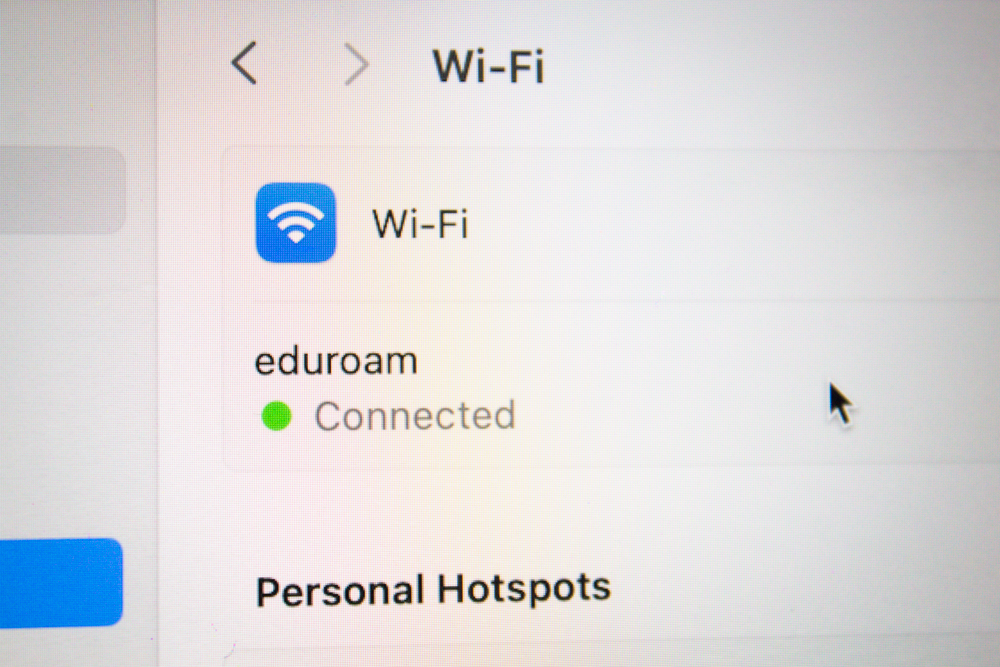Boston University transitioned its Wi-Fi system to the federated “eduroam” service in an effort to reduce overlapping services and provide students with internet access at other educational institutions, according to University officials.
Students were given three networks to choose from in the previous system: “BU Guest (unencrypted),” “BU (802.1x)” and “eduroam.”
The university retired BU (802.1x) in June, leaving only eduroam and BU Guest available for connection.

This shift has been in the works for a few years, according to BU Assistant Vice President of Infrastructure Greg Weldon and BU Director of Network Security Charles Von Lichtenberg. They explained that eduroam and 802.1x were functionally identical.
“They were both running on the same infrastructure,” Weldon said. “From a BU perspective, they were redundant. There really wasn’t any value to keeping the 802.1x.”
Von Lichtenberg highlighted eduroam’s advantages, particularly its ability to simplify internet access at other campuses, locally and internationally.
“If you go across the river to MIT, Northeastern or Boston College, which a lot of our people do, or Harvard, and you have eduroam already configured on your laptop or on your cell phone, you’re automatically connected to the network,” he said.
Visitors from other institutions who use eduroam can also use the network on BU’s campus.
Von Lichtenberg said that the September report from the eduroam federation showed that approximately 1.6 million federated authentications took place on BU’s network from individuals representing as many as 30 different countries.
“We have people who collaborate with lots of people around the world,” Lictenberg said. “If they come here, if they’re here for a conference or they’re here to meet with somebody that they’re doing work with, they just come on our campus, they federate and they’re on eduroam WiFi.”
Because of the transition, students must now adjust to a new login process, which requires them to enter their full BU email address instead of just a BU username.
Adrianne Tsai, a junior at BU, said she has found eduroam unreliable at times.
“I feel that it’s kind of hard to connect to the eduroam Wi-Fi in the campus, because it automatically disconnects,” she said.
Junior Liala Jama said she hasn’t experienced much of a difference from the old service, but she appreciates the convenience of accessing Wi-Fi at other colleges.
“I like the universality, how you go to different campuses and they’ll keep you signed in,” Jama said. “At least, I know it works at MIT.”
Anthony Petro, an associate professor of religion in the College of Arts and Sciences, said he is concerned about the reliability of eduroam, especially during online exams.
The switch was an adjustment, and connectivity varies by location on campus, he said.
“For a long time, we had the choice between the 802 network and eduroam, and I stayed on 802 because it seemed like it was more reliable,” Petro said. “My office is at 145 Bay State, and I had a really hard time getting on eduroam there. My laptop was really weird about connecting to it.”
Von Lichtenberg and Weldon said BU is committed to updating its wireless infrastructure as technology evolves. In the meantime, they encourage students to report any internet issues they encounter to Information Services & Technology.
“We really do take student feedback seriously,” Weldon said. “The best thing that anyone can do is call the IS&T service desk and let us know.”
















































































































